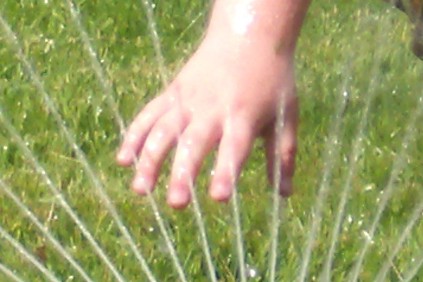Creating A Better World, One Choice At A Time
Composting Backyard Leaves:
If you have too many leaves to incorporate into the compost bin, you can simply compost the pile of leaves by itself. Locate the pile where drainage is adequate; a shaded area will help keep the pile from drying out.
The leaf pile should be at least 4' in diameter and 3' in height. Include a layer of dirt between each foot of leaves. The pile should be damp enough that when a sample taken from the interior is squeezed by hand, a few drops of moisture will appear. The pile should not be packed too tightly.
The pile will compost in 4 - 6 months, with the material being dark and crumbly. Leaf compost is best used as an organic soil amendment and
conditioner; it is not normally used as a fertilizer because it is low in nutrients.
http://eartheasy.com/grow_compost.html

|
Composting Brochure to hand out.pdf Size : 387.672 Kb Type : pdf |

|
brochure for clean air.pdf Size : 384.884 Kb Type : pdf |
Composting is a biological process in which microorganisms gradually break down organic materials such as leaves and other yard trimmings into a humus-like product called compost. Composting can be practiced at home or at a community compost site. (EPA -452/F-93-010 Aug. '93) | It is easy to start a compost pile in your own backyard. Composting helps the environment by diverting organic materials, such as yard trimmings from landfills, reducing pollution emitted during leaf burning, and returning vital organic materials and nutrients to the soil. (EPA -452/F-93-010 Aug. '93) |
Compost can be used for a variety of gardening projects. It can enrich gardens, improve the soil around trees and shrubs, and be used as a soil additive for houseplants and planter boxes. Compost can enhance soil texture, increase the ability of the soil to retain air and water, decrease erosion, and reduce the use of chemical fertilizers and peat moss. The following are some other uses for compost:
*Farmers use compost for enhancing crops and for sod production
*Nurseries use compost for enhancing plant and forest seedling crops in reforestation projects.
*Landscapers use compost as a soil amendment and landscape cover at residential and commercial properties, golf courses, and athletic fields. Landscapers also use compost to cover landfills and carry out soil reclamation projects.
*Public agencies use compost for landscaping highway median strips, parks, recreational areas, and other public property.
(EPA -452/F-93-010 Aug. '93)
EPA Composting Basic Information |
EPA Environmental Fact Sheet |
|
Outdoor Compost Guide |
|
 |